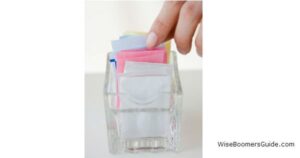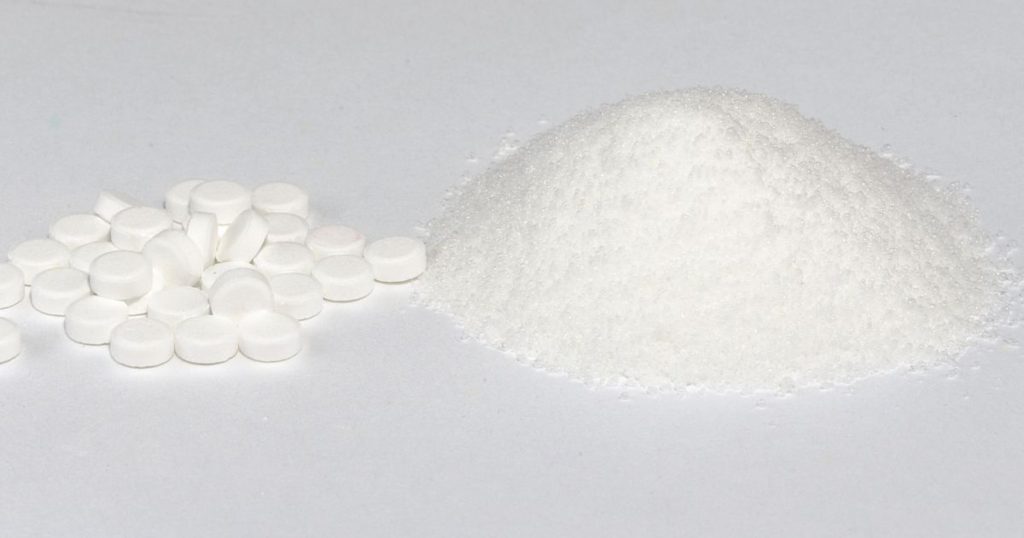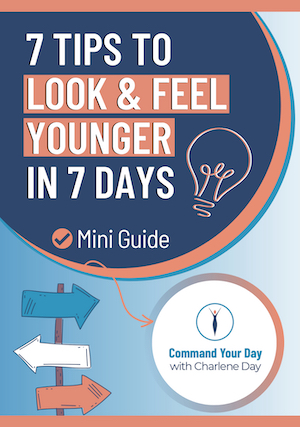 A sugar substitute is a food additive that duplicates the effect of sugar in taste, usually with less food energy. In this third blog about sweeteners, we will cover the chemical artificial sweeteners.
A sugar substitute is a food additive that duplicates the effect of sugar in taste, usually with less food energy. In this third blog about sweeteners, we will cover the chemical artificial sweeteners.
In the United States, six intensely-sweet sugar substitutes have been approved for use. They are stevia, aspartame, acesulfame potassium, neotame, saccharin and sucralose. Cyclamates are approved in Canada. There is some ongoing controversy over whether artificial sweetener usage poses health risks. The US Food and Drug Administration regulates artificial sweeteners as food additives. Food additives must be approved by the FDA, which publishes a Generally Recognized as Safe (GRAS) list of additives. To date, the FDA has not been presented with scientific information that would support a change in conclusions about the safety of these approved high-intensity sweeteners (with the exception of Stevia [fusion_builder_container hundred_percent=”yes” overflow=”visible”][fusion_builder_row][fusion_builder_column type=”1_1″ background_position=”left top” background_color=”” border_size=”” border_color=”” border_style=”solid” spacing=”yes” background_image=”” background_repeat=”no-repeat” padding=”” margin_top=”0px” margin_bottom=”0px” class=”” id=”” animation_type=”” animation_speed=”0.3″ animation_direction=”left” hide_on_mobile=”no” center_content=”no” min_height=”none”][see my last blog post] which is exempt under FDA’s GRAS policy due to its being a natural substance in wide use well before 1958, and has been approved by FDA).
So let’s take a look at these chemicals.
ASPARTAME
It is sold under the trademarked names “NutraSweet” and “Equal”. It is an artificial, non-saccharide sweetener. It is still the king of artificial sweeteners, and is 200 times sweeter than natural sugar.
It has a long history of controversy with some authors calling it the most dangerous substance on the market. Aspartame causes over 75% of the adverse reactions from food additives reported. There are 92 documented symptoms of aspartame poisoning such as seizures, headaches, dizziness, nausea, vomiting, weakness, abdominal pain, muscle pain, shooting pains, disorientation, visual defects, dry eyes, dry mouth, joint pains, confusion, memory loss and difficulty wearing contacts due to decreased tears and even coma and death in extreme cases as dieters.
Aspartame consists of aspartic acid, phenylalanine and methanol. When ingested, aspartame breaks down into three amino acids as well as methanol, a poison known as wood alcohol. The continuing digestive process then converts this methanol into formic acid and formaldehyde, which is a well-known neuro-toxin and carcinogen; it interferes with DNA replication.
Researchers and physicians report that many chronic illnesses can be triggered or worsened by aspartame. These include brain tumours, multiple sclerosis, lupus, epilepsy, chronic fatigue syndrome, Parkinson’s disease, Alzheimer’s, mental retardation, amyotrophic lateral sclerosis, memory loss, hormonal imbalance, hearing loss, AIDS dementia, brain lesions, uterine polyps, abnormal cholesterol levels, lymphoma, birth defects, fibromyalgia, diabetes, hypoglycemia, neuro-endrocrinological problems and brain neurotransmitter imbalances.
“Equal, NutraSweet”, and “Canderel” are ingredients of approximately 6,000 consumer foods and beverages sold worldwide, including diet sodas and other soft drinks, instant breakfasts, breath mints, cereals, sugar-free chewing gum, cocoa mixes, frozen desserts, gelatin desserts, juices, laxatives, chewable vitamins supplements, milk drinks, pharmaceutical drugs and supplements, shake mixes, tabletop sweeteners, teas, instant coffees, topping mixes, wine coolers and yogurt.
ACESULFAME K (acesulfame potassium)
Sold under the brand names “Sweet One, Sunette”. This is a synthetic compound containing the mineral sulfur, nitrogen and potassium. Like saccharin, it has a slightly bitter aftertaste, especially at high concentrations.
Acesulfame K is stable under heat, allowing it to be used in baking, or in products that require a long shelf life. In carbonated drinks, it is almost always used in conjunction with another sweetener, such as aspartame or sucralose. It is also used as a sweetener in protein shakes and pharmaceutical products especially chewable and liquid medications, where it can make the active ingredients more palatable.
As with other artificial sweeteners, there is concern over the safety of acesulfame potassium. Critics say acesulfame potassium has not been studied adequately and may be carcinogenic.
CYCLAMATES
Sodium cyclamate is an artificial sweetener. It is often used synergistically with other artificial sweeteners, especially saccharin; the mixture of 10 parts cyclamate to 1 part saccharin is common and masks the off-tastes of both sweeteners.
The FDA (USA) banned these in 1970 due to their association with bladder cancer, effects on heart and blood pressure and capacity to cause cell changes – but not in Canada where, seemingly people do not get cancer from them.
In Canada sweeteners produced by “Sweet’N Low” and “Sugar Twin” contain cyclamate.
NEOTAME
Neotame is an artificial sweetener that is moderately heat stable and extremely potent. It has the characteristic aftertaste common to artificial sweeteners.
Neotame, simply a modified version of aspartame, contains all the same elements found in aspartame and more. See above for more info on the controversy relating to aspartame
SACCHARINE (ortho-sulfamido-benzonic acid)
Saccharin is an artificial sweetener processed from petroleum. The basic substance, benzoic sulfilimine, has an unpleasant bitter or metallic aftertaste. It is used to sweeten products such as drinks, candies, biscuits, medicines, and toothpaste.
Saccharin is often used together with aspartame in diet soda, so that some sweetness remains should the fountain syrup be stored beyond aspartame’s relatively short shelf life.
Saccharine was banned in the USA due to its link with cancer. In a 2010 release, the EPA stated that saccharin is no longer considered a potential hazard to human health. In Canada, it is only available from pharmacists and dispense it to anyone who asks. Canada is considering lifting their previous ban of it as a food additive.
SUCRALOSE
Sold under the “Splenda,” trademark in Canada and “Kaltame SucraPlus, Candys, Cukren,” and “Nevella” elsewhere.
This is an artificial sweetener is produced from sucrose when three chlorine atoms replace three hydroxyl groups. It is used in beverages, frozen desserts, chewing gum, baked goods, and more than 4,500 food and beverage products. It is stable when heated and can therefore be used in baked and fried goods.
It was banned by the FDA (USA) in 1970 due to the association with cancer but then was reapproved in 1998. Also some concern has been raised about the effect of sucralose on the thymus. Sucralose was first approved for use in Canada in 1991.
“Splenda” is increasingly found in restaurants, including McDonald’s, Tim Hortons and Starbucks, in yellow packets, in contrast to the blue packets commonly used by aspartame and the pink packets used by those containing saccharin sweeteners; though in Canada, yellow packets are also associated with the “SugarTwin” brand of cyclamate sweetener.
These artificial sweeteners have been deemed safe for human consumption by government authorities but based on what you just read, you be the judge of whether you want to ingest them or not. Listen to your body, it wants food not chemicals.
For more information, please visit my last blog posts called The Truth About Refined Sugar and Unraveling The Mystery of Carbohydrate Sweeteners.
I’d love to get your feedback. Here on my blog, you’ll get commentluv. That’s great for all bloggers out there. If you leave a comment, you can provide a link back to your own blog. But you don’t have to be a blogger to leave a comment; I’m looking forward to hearing from all of you!
To your good health!
Charlene[/fusion_builder_column][/fusion_builder_row][/fusion_builder_container]




I use to use splenda. I try to avoid all sweeteners the best I can. I like to use raw honey and Medjool dates if I need to sweeten something up.
You are definitely on the right track. Your body will thank you.
Charlene
I have learned huge knowledge from here.